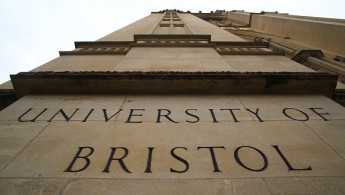British academic David Miller was 'discriminated against due to anti-Zionist stance': tribunal
British academic David Miller was discriminated against by his employer due to his "anti-Zionism beliefs", a UK tribunal has found, in a landmark decision that could strengthen freedom of speech in the workplace.
Miller was sacked as an anthropology professor by the University of Bristol in 2021 after a history of comments about Israel and Zionism, which were deemed by some to be anti-semitic, according to The Guardian.
The university ruled that his comments "did not constitute unlawful speech" but a disciplinary hearing did rule it "did not meet the standards of behaviour we expect from our staff".
A work tribunal has since found that Miller's "anti-Zionist beliefs qualified as a philosophical belief and as a protected characteristic pursuant to section 10 Equality Act 2010" and that the professor was unfairly dismissed.
"This judgment establishes for the first time ever that anti-Zionist beliefs are protected in the workplace," said Rahman Lowe, who represented Miller, saying it is "a landmark decision".
Miller has courted controversy with his comments against Zionism, with the Union of Jewish Students saying the ruling would set a "dangerous precedent" precedent.
His lawyer, Zillur Rahman, said: "[The ruling] marks a pivotal moment in the history of our country for those who believe in upholding the rights of Palestinians... [and] welcomed by many who at present are facing persecution in their workplaces for speaking out against the crimes of the Israeli state, and the genocide taking place in Gaza."
VICTORY AT THE EMPLOYMENT TRIBUNAL
— David Miller (@Tracking_Power) February 5, 2024
The Employment Tribunal has released its judgment in my landmark legal case against @BristolUni, concluding that I was wrongfully dismissed in October 2021 and discriminated against because of my anti-Zionist beliefs. This is not just a victory… pic.twitter.com/h4gV1aIoTj
Rahman said his client will seek compensation from the university for his dismissal.
Miller said was proud that the ruling means that anti-Zionist beliefs will be protected under the UK Equality Act.
"This was the most important reason for taking the case and I hope it will become a touchstone precedent in all the future battles that we face with the racist and genocidal ideology of Zionism and the movement to which it is attached," he said.
The University of Bristol responded to the case: "We recognise that these matters have caused deep concern for many and that members of our community hold very different views from one another. We would, therefore, encourage everyone to respond in a responsible and sensitive way in the current climate."
There have been fears about freedom of speech in the UK, Europe, and the US following disciplinary action taken by universities and workplaces over workers' and students' pro-Palestine views.





 Follow the Middle East's top stories in English at The New Arab on Google News
Follow the Middle East's top stories in English at The New Arab on Google News


